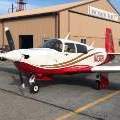What's the closest you've come to landing gear up?
Closest to gear up?
90 members have voted
-
1. What's the closest you've come to landing gear up?
-
Forgot more than once, on the insurance shit list0
-
I'm one of the "those who have"8
-
Prop and go2
-
Just realized gear not down in ground effect, went around in time2
-
Forgot through short final but saved in time5
-
Someone else (tower/passenger) reminded me in time8
-
Gear warning saved the day6
-
Checklist made me realize I forgot to put it down6
-
Never forgot to put it down when intended53
-
Can't forget to put it down cause it doesn't come up, have a D model0
-
-
Members Online
- patriot3300
- emiliocastelli
- dzeleski
- varlajo
- Jakes Simmons
- VetRepp
- TangoTango
- acekng1
- Shadrach
- Griswold
- dwanzor
- Rob K
- Yetti
- exM20K
- FlyingScot
- bencpeters
- N201MKTurbo
- 303mooney
- AaronJr
- 0TreeLemur
- chrisburdzy98
- Greg Ellis
- MarkD34M
- IvanP
- Yourpilotincommand
- Max Clark
- mooneyfun
- mluvara
- TCC
- NickG
- hammdo
- Burt Stevens
- vorlon1
- eman1200
- DEGWS
- Kelpro999
- MatthiasArnold
- Parker_Woodruff
- HALL_A
- Rwsavory
- boboxa9895
- Carl Everitt
- SKI
- ElkoRandy20J
- EKoS


Recommended Posts
Join the conversation
You can post now and register later. If you have an account, sign in now to post with your account.